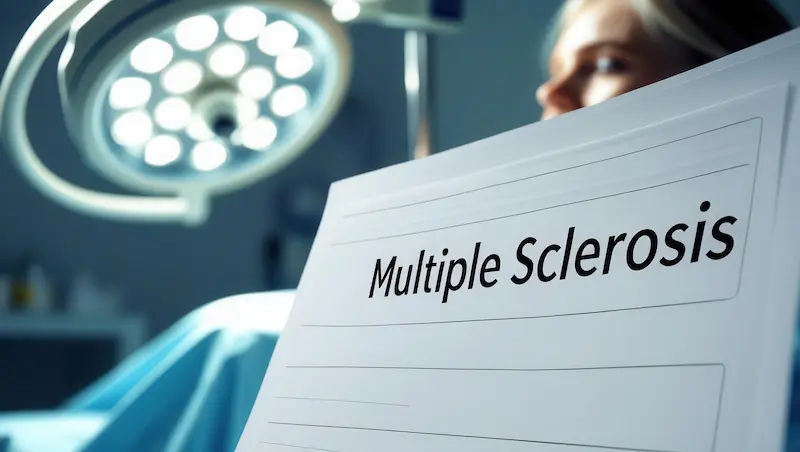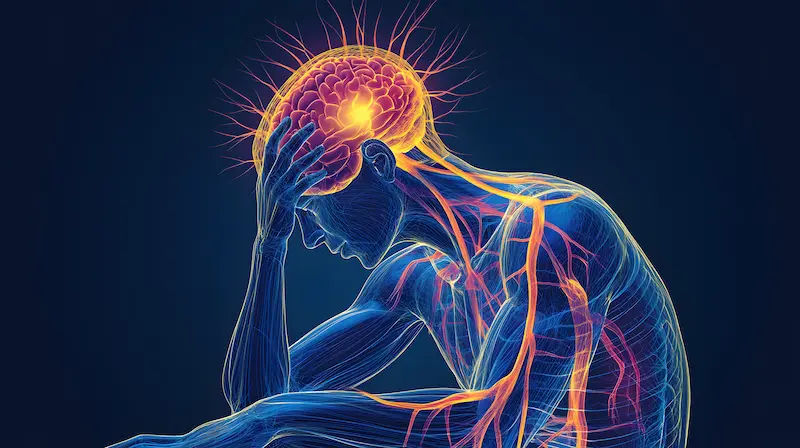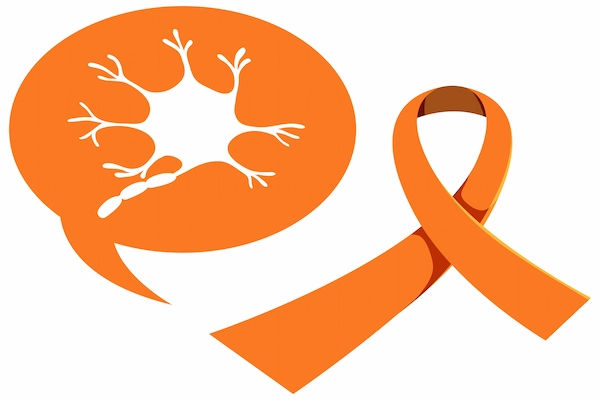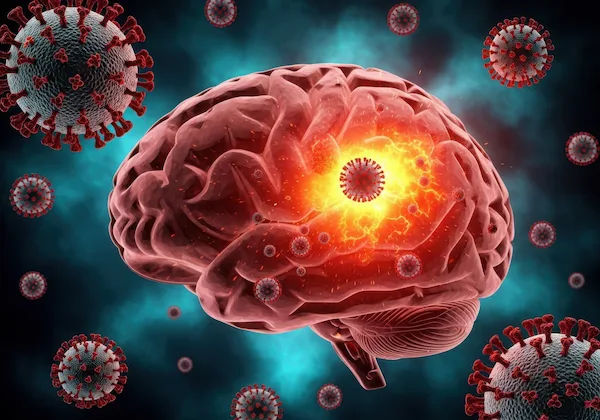Multiple Sclerosis: Recognising the Signs and Understanding the Types
Know about the multiple sclerosis, what it is, signs, types, causes, diagnosis, treatment options and more.


Introduction
Multiple Sclerosis (MS) is a chronic disease where the body's own immune system mistakenly attacks this insulation called the myelin sheath in the brain and spinal cord. This damage disrupts the vital communication between your brain and the rest of your body, leading to a wide range of unpredictable and often disabling symptoms. This article will guide you through the common indicators of multiple sclerosis, explain its various forms, and shed light on the path to diagnosis and living well with this condition.
What is Multiple Sclerosis? An Autoimmune Malfunction
Multiple sclerosis is classified as an autoimmune disorder. In healthy individuals, the immune system defends against foreign invaders like viruses and bacteria. In MS, it malfunctions and targets the central nervous system (CNS), which comprises the brain, spinal cord, and optic nerves.
Health topic carousel:
Doctor's speciality: Neurologist
Text: Consult a Neurologist for Personalised Advice
How MS Affects the Central Nervous System
The primary target of this misguided attack is the myelin sheath. This fatty substance wraps around nerve fibres (axons), allowing electrical impulses to transmit rapidly. When myelin is damaged, it forms scar tissue (sclerosis). These scars, or lesions, disrupt the nerve signals. They can slow them down, distort them, send them down the wrong path, or block them entirely. It's like a frayed electrical cable causing a short circuit. This disruption is what produces the diverse neurological symptoms characteristic of MS disease.
Early Signs and Symptoms of Multiple Sclerosis
The symptoms of MS are incredibly varied and depend entirely on the location of the nerve damage. No two people experience MS in the same way. However, some early signs are more common than others.
Common Early Warning Signs
The common early warning signs include:
Vision Problems: Optic neuritis inflammation of the optic nerve is a frequent first sign. It can cause blurred vision, pain with eye movement, or loss of colour vision, usually in one eye.
Numbness and Tingling: Often described as "pins and needles," these sensory disturbances are common. You might feel numbness in the face, body, arms, or legs.
Fatigue: This isn't ordinary tiredness. It's an overwhelming sense of exhaustion that isn't relieved by sleep and can significantly disrupt daily activities.
Weakness and Spasticity: Muscles may feel weak, heavy, or difficult to move. Spasticity involves feelings of stiffness and involuntary muscle spasms.
Balance and Dizziness: Problems with coordination, balance (ataxia), and feelings of vertigo or lightheadedness are common.
Bladder and Bowel Dysfunction: This includes frequent urination, urgency, incontinence, or constipation.
The Unpredictable Nature of MS Symptoms
Symptoms can come and go, or they can persist and change over time. A period of new or worsening symptoms is known as a relapse, exacerbation, or "flare-up." These can last for days or weeks before partially or fully improving (remission).
The Four Main Types of Multiple Sclerosis
Understanding the type of MS a person has is critical, as it determines the disease's progression and treatment approach. The course of multiple sclerosis is generally categorised into four types.
Relapsing-Remitting MS (RRMS)
This is the most common form, affecting about 85% of people initially diagnosed. RRMS is defined by clear periods of new or increasing symptoms (relapses) followed by periods of partial or complete recovery (remission). During remissions, the disease does not appear to progress.
Secondary-Progressive MS (SPMS)
Many people with RRMS will eventually transition to SPMS. In this phase, the disease begins to progress more steadily, with or without occasional relapses and minor remissions. There is a gradual worsening of neurological function over time.
Primary-Progressive MS (PPMS)
Approximately 10-15% of people are diagnosed with PPMS. It is characterised by a steady worsening of neurological function from the onset, without distinct relapses or remissions. Symptoms may plateau occasionally, but the overall trend is a gradual decline.
Progressive-Relapsing MS (PRMS) - A Rarer Form
This is the least common type, affecting only about 5% of people with MS. PRMS involves a steady progression of the disease from the beginning, with additional clear acute relapses. There may be some recovery following these relapses, but the disease continues to progress.
What Causes MS? Unravelling the Triggers
The exact cause of multiple sclerosis remains unknown. It is believed to be triggered by a combination of genetic susceptibility and environmental factors.
The Role of the Immune System
At its core, MS is an immune-mediated disease. For reasons not fully understood, immune cells called T-cells become activated, cross the blood-brain barrier, and launch an attack on the myelin and, eventually, the underlying nerves themselves.
Genetic and Environmental Risk Factors
Genetics: MS is not directly inherited, but having a first-degree relative (parent or sibling) with MS increases your risk.
Geography: Prevalence is higher in countries farther from the equator, suggesting a link to vitamin D deficiency from reduced sunlight exposure.
Viruses: The Epstein-Barr virus (which causes mononucleosis) has been strongly linked to the development of MS.
Smoking: Smokers who experience an initial MS-like event are more likely than non-smokers to develop full-blown MS.
How is Multiple Sclerosis Diagnosed?
There is no single test for MS. Diagnosis involves a combination of tools and assessments to rule out other conditions with similar symptoms a process known as a differential diagnosis.
The McDonald Criteria: A Standard for Diagnosis
Neurologists use the McDonald Criteria, which incorporates clinical attacks, MRI findings, and cerebrospinal fluid analysis to demonstrate that damage has occurred in the CNS at different times and in different areas.
Key Diagnostic Tests: MRI and Beyond
It includes
MRI (Magnetic Resonance Imaging): This is the most important tool. It can reveal the characteristic lesions (scars or plaques) in the brain and spinal cord.
Lumbar Puncture (Spinal Tap): Analyses cerebrospinal fluid for oligoclonal bands, which are proteins indicating an immune response within the CNS.
Evoked Potentials: These tests measure the electrical activity in the brain in response to stimuli (like flashing lights or electrical pulses) to detect slowed nerve signal transmission.
If you are experiencing neurological symptoms that come and go, it's essential to consult a specialist. For a comprehensive evaluation, you can book a consultation with an expert neurologist online through Apollo24|7 to discuss your symptoms and potential next steps.
Health topic carousel:
Lab test: MRI, Lumbar Puncture.
Text: Get Your Symptoms Assessed
Treatment Options for Managing MS
While there is no cure for MS yet, highly effective treatments can modify the disease course, manage relapses, and control symptoms.
Disease-Modifying Therapies (DMTs)
These are the cornerstone of treatment for relapsing forms of MS. DMTs work by reducing the frequency and severity of relapses and slowing the formation of new brain lesions. They help to slow disease progression and disability accumulation over the long term. There are numerous options, including injectables, oral medications, and infusions.
Treating Acute Relapses and Specific Symptoms
Relapses: Severe relapses are often treated with high-dose corticosteroids to reduce inflammation and speed up recovery.
Symptom Management: A multidisciplinary approach is key. This includes medications for fatigue, spasticity, pain, and bladder issues, alongside physical therapy, occupational therapy, and lifestyle modifications.
Apollo24|7 offers convenient home collection for blood tests that might be required to monitor your health while on certain DMTs or to check vitamin D levels, which are often important in MS management.
Living a Full Life with Multiple Sclerosis
A diagnosis of MS is life-changing, but it is not life-ending. With modern treatments, most people with MS have a normal or near-normal life expectancy. The focus is on managing symptoms, preserving function, and maintaining mental well-being. A healthy diet, regular exercise tailored to your abilities, stress management, and a strong support network are all vital components of living well with MS.
Conclusion
Multiple sclerosis is a complex and unpredictable disease, but it is also one where medical science has made tremendous strides. Recognising the early signs of MS from vision changes and numbness to profound fatigue is the critical first step toward seeking a diagnosis. While the journey with MS is challenging, it is a manageable condition. With an accurate diagnosis, effective disease-modifying therapies, and a comprehensive care plan, individuals with MS can lead active, fulfilling lives. If you suspect you or a loved one may be showing symptoms, do not hesitate to seek professional medical advice to begin the process of understanding and managing this condition.
Health topic carousel:
Doctor's speciality: Neurologist
Text: Consult a Neurologist for Personalised Advice
FAQs
1. What are usually the first signs of MS?
A.The most common first signs include optic neuritis (blurred vision/pain in one eye), numbness or tingling in the face or limbs, and significant, unexplained fatigue. However, initial symptoms can vary widely from person to person.
2. What is the life expectancy for someone with multiple sclerosis?
A.Most people with MS have a normal or near-normal life expectancy. The disease is rarely fatal itself; rather, complications from severe disability can impact longevity. Modern treatments have significantly improved long-term outcomes.
3. Is multiple sclerosis considered a serious disease?
A.Yes, MS is a serious, chronic neurological condition that can lead to significant disability. However, with today's advanced treatments, many people live full and active lives with manageable symptoms, and the progression of the disease can often be slowed dramatically.
4. What is the main cause of multiple sclerosis?
A.The exact cause is unknown, but it is believed to be an immune-mediated disorder triggered by a combination of genetic predisposition and environmental factors, such as certain viral infections (e.g., Epstein-Barr virus) and low vitamin D levels.
5. Can MS be cured?
A.Currently, there is no cure for MS. However, there are many highly effective treatments called Disease-Modifying Therapies (DMTs) that can control the disease activity, reduce the number and severity of relapses, and slow the progression of disability.
Consult Top neurologist

Dr Debnath Dwaipayan
Neurosurgeon
9 Years • MBBS, MS(Gen. Surgery), DrNB (Neurosurgery)
Delhi
Apollo Hospitals Indraprastha, Delhi

Dr. Dipti Ranjan Tripathy
Neurologist
15 Years • MBBS, MD (GENERAL MEDICINE ),DM (NEUROLOGY)
Rourkela
Apollo Hospitals, Rourkela, Rourkela
(25+ Patients)

Dr. Srikanth Srinivasan
Neurologist
21 Years • MD[Gen] DM[Neuro] Master of Psychiatry[Melbourne]
Chennai
Apollo Hospitals Greams Road, Chennai
(150+ Patients)

Dr. Sandeep Gurram
Neurologist
12 Years • MBBS, MD(Internal Medicine), DM(Neurology), PDF(Movement disorders) - NIMHANS
Secunderabad
Apollo Hospitals Secunderabad, Secunderabad

Dr. Uddalak Chakraborty
Neurologist
8 Years • MBBS, MD(GENL.MED.),DM(NEUROLOGY)
Kolkata
MCR SUPER SPECIALITY POLY CLINIC & PATHOLOGY, Kolkata
Consult Top Specialists

Dr Debnath Dwaipayan
Neurosurgeon
9 Years • MBBS, MS(Gen. Surgery), DrNB (Neurosurgery)
Delhi
Apollo Hospitals Indraprastha, Delhi

Dr. Dipti Ranjan Tripathy
Neurologist
15 Years • MBBS, MD (GENERAL MEDICINE ),DM (NEUROLOGY)
Rourkela
Apollo Hospitals, Rourkela, Rourkela
(25+ Patients)

Dr. Srikanth Srinivasan
Neurologist
21 Years • MD[Gen] DM[Neuro] Master of Psychiatry[Melbourne]
Chennai
Apollo Hospitals Greams Road, Chennai
(150+ Patients)

Dr. Sandeep Gurram
Neurologist
12 Years • MBBS, MD(Internal Medicine), DM(Neurology), PDF(Movement disorders) - NIMHANS
Secunderabad
Apollo Hospitals Secunderabad, Secunderabad

Dr. Uddalak Chakraborty
Neurologist
8 Years • MBBS, MD(GENL.MED.),DM(NEUROLOGY)
Kolkata
MCR SUPER SPECIALITY POLY CLINIC & PATHOLOGY, Kolkata




